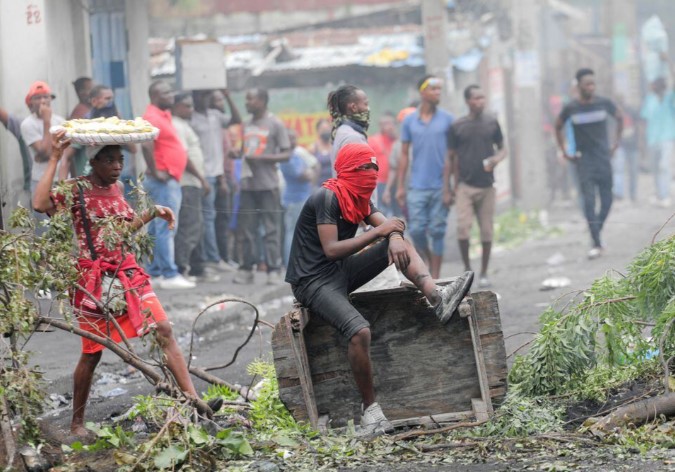Longevity, influence and the social media trap: Who do we trust with our health?
In a world where six-pack abs are flaunted more than six-point health plans, who are we really trusting […]

Haiti faces ongoing challenges, marked by political instability, economic struggles, and natural disasters. Recent violent clashes between criminal groups in Cité Soleil have resulted in casualties and increased vulnerability, especially among women and children.
The violence escalated to the point where Fontaine Hospital, one of the few remaining healthcare facilities in the area, was targeted, forcing patients and staff to flee and leaving women, newborns, and children at a day care center trapped.
The facts
The last quarter of 2023 saw 2,327 deaths, injuries, and kidnappings—an 8% rise in victims of criminal organizations from the July–September quarter prior, bringing the total to almost 8,400 since January 2023.
Haitians continue to live in fear as the attacks continue. The attacks do not take place at one place and it seems different rivals groups are involved.
Early this year, gang members attacked a vital neighbourhood in Port-au-Prince, the capital of Haiti, for four days. The community is home to many police officers, and the locals were afraid that the violence may spread throughout the city.
The sound of automatic rifles reverberated throughout Solino as dense columns of black smoke rose above the hitherto tranquil neighborhood, forcing residents to make desperate calls to radio stations.
Brooklyn, a community outside of Port-au-Prince was mostly cut off from electricity, clean water, and medical treatment since G9 and G-Pèp, a rival criminal organization, started fighting in July 2022. Residents leave the community in search of food and other necessities despite the risks. The two parties reached a tenuous ceasefire in late June 2023 after agreeing on a truce, but neighbourhoods are still under their control and abuse reports are still coming in. Many residents could only afford to eat one meal every two or three days, and many struggled to take their children to school.
Why are Haitians in this vulnerable state over a long period and what makes it difficult to send help?
The arguments
The Haitian government has come under fire for allegedly failing to shield citizens from criminal organizations’ violence. The police and other authorities are practically nonexistent to the residents in the impacted areas.
The Security Council established a special political mission called the United Nations Integrated Office in Haiti (BINUH) in its resolution 2476 of 25 June 2019 and deployed under chapter VI of the United Nations Charter.
With a presence only in Port-au-Prince, and focusing exclusively on the provision of advisory services and good offices, BINUH works primarily with State institutions to strengthen political stability and good governance, including the rule of law, advance a peaceful and stable environment, including through supporting an inclusive inter-Haitian national dialogue, and protect and promote human rights.
Prolonged impunity for violations of human rights, a broken legal system, and severe political impasse all contribute to the grave security situation. Since President Jovenel Moïse was assassinated in 2021, Prime Minister Ariel Henry has been in charge of all parliamentary and executive activities. However, he has not been able to come to an agreement with Haitian political actors to facilitate the country’s democratic transition. According to the facts at hand, from the year’s beginning, there have been no prosecutions or convictions of those accountable for the murders, kidnappings, and sexual assaults.
According to a report by Human Rights Watch, Haitian civil society representatives urged that foreign nations ought to renounce their support for Prime Minister Henry, whom they saw as leading an illegal, dishonest, and criminally connected administration.
The activists stated that a rights-based international response is desperately needed for Haitians, who are facing a catastrophic food crisis, an increase in sexual abuse, and a spike in killings and kidnappings.
Because they were afraid of retaliation and had little faith in or access to the legal system, victims frequently came forward to publicly denounce the crimes, reported them to the police, or filed judicial complaints.
Human rights campaigners think that significant reform is unlikely to occur until a new, more legitimate transitional administration is established. This government should ideally be led by technocrats who have no ties to criminal organizations and who would not stand for election in the near future.
The UN Security Council needs to pay attention to these requests and, should it approve the peaceful deployment of an international force in Haiti, guarantee that it is founded on well-defined human rights procedures and has sufficient resources and strong supervision mechanisms, right groups urged.

In a world where six-pack abs are flaunted more than six-point health plans, who are we really trusting […]

In the era of social media, post-COVID, and with mental health at the forefront, a shift is taking […]